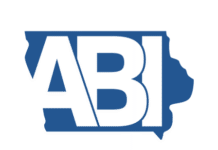Inaugural addresses traditionally serve as an opportunity for incoming presidents to share their visions and goals for the institution.
But Western Illinois University President Guiyou Huang’s speech delivered on WIU’s Macomb campus on Thursday, March 31, played more like a progress report on how far WIU has come since he took over on Jan. 1, 2021. The original inauguration was delayed more than a year due to COVID-19.

“Never in my wildest dreams as a college student in China could I have imagined I would be standing here at the helm of an American institution poised for significant change,” Mr. Huang said. “It seems that only in America does this happen to a new, paltry American student.”
Speakers at the event, which also was live-streamed on WIU’s YouTube channel, said Mr. Huang, who is three months into his sophomore year as WIU’s leader, didn’t waste any time in working to craft and implement plans for dealing with challenges facing the university. They include concerns over enrollment; the need to promote justice, diversity, inclusion and equality; and what WIU Faculty-Senate Chair Maceio I. Lauer called a “crisis of confidence” in leadership at WIU.
Under Mr. Huang’s leadership, Mr. Lauer said, WIU has made a commitment to shared governance and involved faculty in “ambitious but realistic planning for our future.” As a result, he said, WIU is beginning to surmount “a decade of declining enrollment, chronic underfunding, layoffs and a crisis of confidence topped off, why not, by a global pandemic.”
WIU, which was established in 1899, has had just 12 presidents in its history. In a little more than a decade, however, two presidents and an interim president have led the regional university with a Quad Cities campus (WIU-QC) on the Moline riverfront.
Doug Shaw, chairman of the WIU Board of Trustees and a WIU alumnus, described the leadership challenge this way: “The road to this moment has not always been smooth … We hit construction on that road and one time we got down to one lane. The only thing that kept us going was the faith that we were moving in the right direction.”
When a national search firm put together a list of possible leaders, Mr. Shaw said, “Guiyou Huang rose to the top of those candidates.” That was due, in part, to his experience as a proven leader, as well as his “realistic and attainable goals for sustainability.”
Billy Clow, WIU interim provost, described Mr. Huang as a “thoughtful, genuine and warm leader” and a problem-solver who is concerned for the needs of the entire community.
“Under your leadership, we will chart the course for the bright and solid future for WIU,” he added.
“No longer are we gripped by a crisis of confidence,” Mr. Shaw said. Today, he said, “There is nothing wrong with Western that cannot and will not be fixed by what is right with Western.”
Mr. Huang used a large portion of his speech to laud top staff and faculty members who are making contributions to the university and its students, the region and the nation. He also saluted student volunteers and alumni who are making a difference locally and in the world.
Mr. Huang said he grew up in Eastern China and his parents each had only seven years of schooling, but they instilled in him and his brothers and sisters, all college graduates, the importance of an education “and encouraged my siblings and me to explore a broader world.”
For Mr. Huang, that meant heading to the United States from Beijing, where he was a graduate student studying British literature. His 33-year path in the United States included stops in Texas, Pennsylvania, Michigan, Florida and Vermont, and back to the University of Edinburgh, Pennsylvania, where he served as president. “Now Illinois, which my family and I now consider home,” he said.
“These are challenging times for higher education for both public and private institutions,” Mr. Huang said. “Almost daily articles can be found that speak to the difficulties” across the entire education sector.
Among them, he said, are a decrease in high school graduates, public skepticism about whether the cost of college is worth the investment, and a funding system that is “increasingly placing the financial burden on the shoulders of students and their families.” Many of those families at universities like WIU are of modest means.
“These challenges call for steady leadership,” he said. He said he draws inspiration from Abraham Lincoln who started his career in Illinois and became president during a time of turmoil.
“Our times are also tumultuous and uncertain,” he said. Among the challenges, he said, are COVID-19, the latest phase of the Russo-Ukrainian war and racial injustice and inequality.
“Never has higher education been more relevant,” he said, nor have regional comprehensive public universities such as Western been more necessary.
He touted WIU’s high placement in U.S. News & World Report highly regarded rankings and a “well-deserved recent salary increase” for employees who deliver that quality education. He also celebrated modest increases in spring enrollment, the rising international student enrollment and the increase in freshman applications for fall.
And he outlined community partnerships, including with the City of Moline through its WIU-QC riverfront campus, in particular, a bilingual childcare center being developed in conjunction with Mayor Sangeetha Rayapati, who attended Thursday’s inauguration festivities in Macomb.
And he reported progress in the first year of WIU’s strategic plan, “Higher Values in Higher Education.” That plan sets aggressive goals for growing enrollment and retaining students.
Under it, he said, “We will work harder and more creatively to prepare the university for the years ahead to “grow strategically” and “prepare students for the future as global citizens.”
“We are acting on it and moving full-steam ahead,” he said. That includes by creating a historic Anti-Racism Task Force, a new office of Justice, Diversity, Inclusion and Equity to help diversity the campus and combat microaggression and racism.
The success of WIU and WIU-QC “clearly rests with all of us,” Mr. Huang told the audience. It also requires courage, he said.
“Brave men and women are right here at WIU,” he said. “They are the Leathernecks. We are the Leathernecks.”




